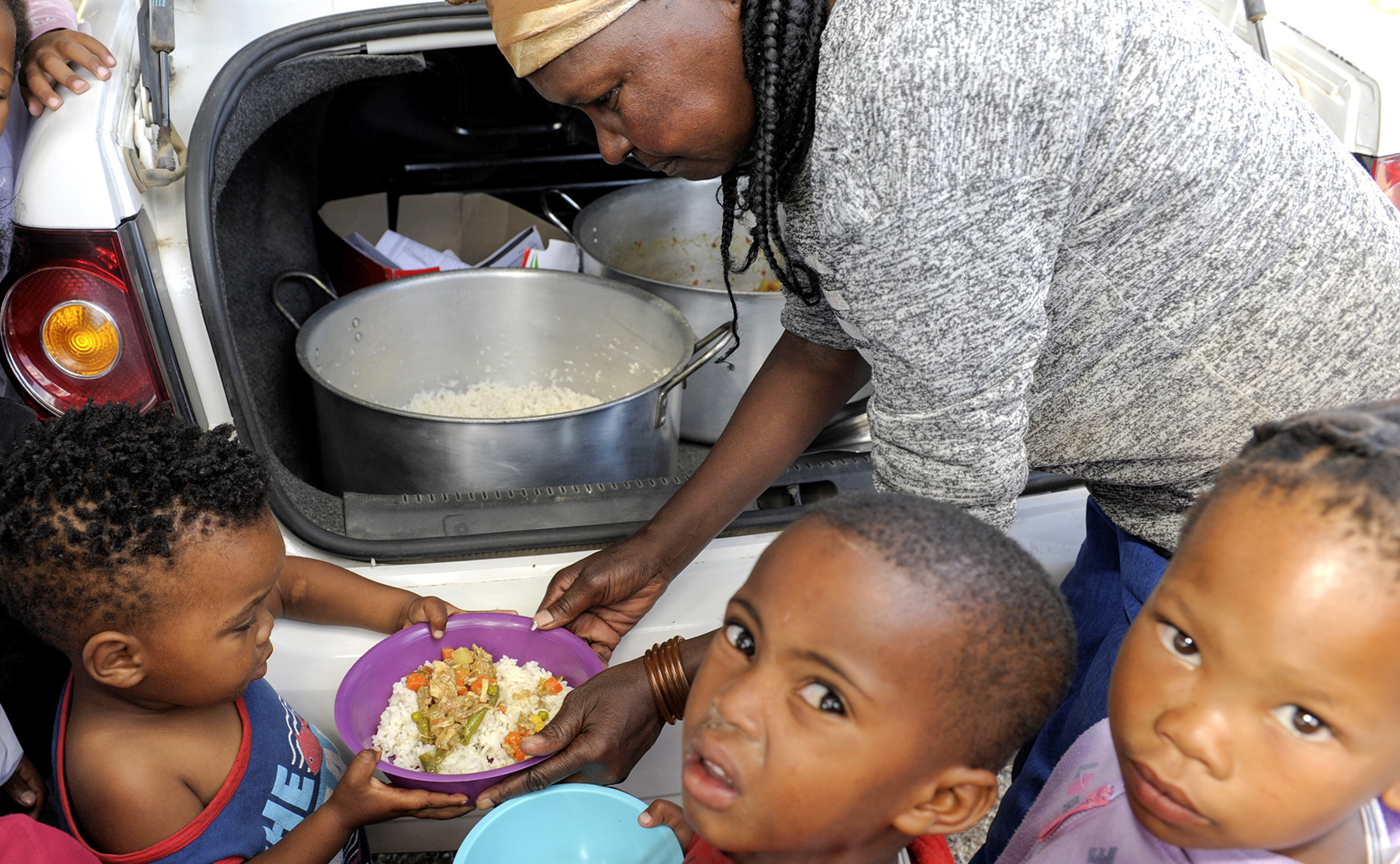The Union Against Hunger, a new civil society outfit, launched on Tuesday, 28 February 2025, and its objective is clear: to address hunger by holding accountable those in power, empowering communities, and advocating for equitable food policies through rights-based frameworks.
Nicoleen McGee, a seasonal farm worker, activist at Women on Farms and mother of four daughters, said she hoped Union Against Hunger would help highlight the struggles farm workers and other vulnerable groups faced.
Women on Farms is one of many organisations that are part of the union. Others include the Healthy Living Alliance of SA (Heala), the Nelson Mandela Children’s Fund, Grow Great, and the Centre of Excellence in Food Security at the University of the Western Cape – each bringing expertise and advocacy experience to the fight against hunger.
In an interview with Daily Maverick, McGee said: “We are working three months out of the year because of the seasonal changes. We can’t support our families for nine months without any income, even when our husbands are working, because of the national minimum wage.
“We as women are struggling. We end up going to money lenders. I hope the government will stop with the VAT increase and find ways to drop the prices because the prices are sky high.”
Read more: What a 2 percentage point VAT increase would actually cost SA households
Women on Farms has a food garden project to mitigate hunger, but McGee said that many farmworkers borrowed money to buy food. If they received a grant, such as the child support grant, they used it to pay back their loans.
“Women who work on farms hope the union will help change this so the government will see how we are struggling. It’s not only about us, our children are sometimes going to school hungry, and they come back and there is nothing to eat so they don’t get the nutrients they need, which can cause dropouts because they cannot concentrate on a hungry stomach,” said McGee, who is based in Paarl, Western Cape, and works at a table grape farm.
The agricultural year is divided into two distinct periods: postharvest, when food is relatively plentiful and cheap, and preharvest, when food is relatively scarce and expensive. The combination of depleted food granaries and rising market prices induces rationing, hunger and undernutrition in poor subsistence-oriented farming households.
Union’s goals
In a statement, the Union Against Hunger said that its launch mobilised civil society, academia, and policymakers to push for systemic reforms that ensured food security for all.
The launch was hosted at The People’s Pantry, “a frontline organisation where the grassroots impact of hunger is felt daily. This event brings some of the most influential voices in food security, public health, and child advocacy to a space that is actively working to alleviate hunger in local communities,” the union said.
Dr Busiso Moyo, Union Against Hunger secretariat, said: “We are failing our children… if you look at the malnutrition and the hunger indicators. We are talking about hunger as a standalone issue that needs urgent government attention… This is a fight about food justice, this is a fight on putting a claim on the right to food.”
Moyo said the movement hoped to distinguish itself, and emphasised that this was about life and death, not only the other themes that fed into it such as unemployment, land access, smallholder farming, and food sovereignty. They’re important issues, but Union Against Hunger felt it needed to urgently push for hunger alleviation.
This comes at the time of the G20, and the union hoped the Global South would amplify the hunger and malnutrition crises. They outlined 10 demands to achieve food justice:
- Realise everyone’s constitutional right to food.
- Halve child stunting by 2030.
- Increase the Child Support Grant to the upper-bound poverty line.
- Extend early childhood development and school nutrition to all children at all times.
- Make nutritious food accessible for all.
- Ensure access to land for small-scale agriculture.
- Introduce programmes to address seasonal hunger.
- Halve food waste to release more food for hungry people.
- Introduce wealth taxes to finance anti-hunger interventions.
- Establish a Ministry of Food and a National Food Commission.
Read more: It’s time to ‘abnormalise’ hunger in South Africa
When asked how the organisation aimed to help enforce or call for the implementation of its demands, Moyo said that the course of action would include “protest action and symbolic demonstrations directed at top country governance and the powerful corporate sector”.
“South African governance systems create ubiquitous political decisions, and as right to food defenders we need to be connected to grassroots organisations to enable connection between these and political elites,” said Moyo.
Dr Kara MacKay from Women on Farms said there was a need to think about what nutritious food was because food could be mishandled and people were ingesting microdoses of pesticides. This was the kind of input the union had received from different organisations that had been mitigating hunger and malnutrition using different methods. They had pooled their knowledge to create a plan of action, which they would roll out this year, she said.
“It’s only in the context of inequality that hunger can be so huge. At Women on Farms we say when a woman is empowered the nation is fed, but when the commercial food system is given control over the food system, the rich are fed and the poor are starved.”
Women on Farms Project is a Stellenbosch-based feminist NGO that has been working with women farm workers and dwellers in the Western Cape since 1996 and in the Northern Cape since 2009. DM





